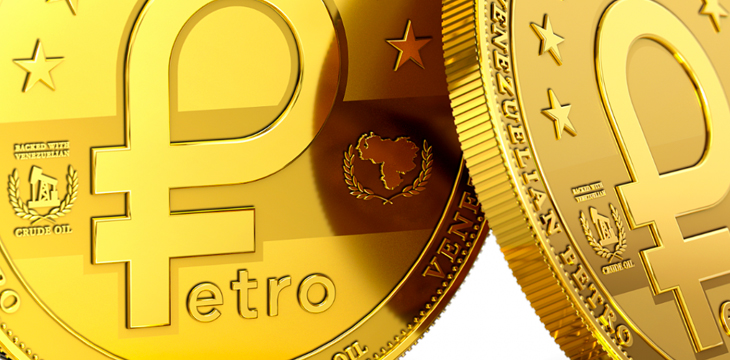|
Getting your Trinity Audio player ready...
|
The government of Venezuela has launched a crypto remittance service for its citizens. The service is the latest in a series of moves aimed at using cryptos to salvage the economy from runaway inflation.
The service will be administered by the country’s crypto regulator, the Superintendency of Cryptoassets and Related Activities (Sunacrip). Initially, the service will only support two cryptos, Bitcoin Core (BTC) and Litecoin.
The service, known as Patria, will have a few restrictions, Sunacrip revealed. The first is that it will only allow its users to receive a maximum of cryptos equivalent to 10 Petros per month. However, Sunacrip can issue a specific approval for a user to receive up to 50 Petros a month.
The Petro is the official cryptocurrency of Venezuela. Supported by the country’s president Nicolas Maduro, the crypto is reportedly backed by natural resources such as oil and gold. As would be expected, it has been involved in many controversies. One of the biggest has been its price, which Maduro has raised upwards twice. In December last year, he raised it from 3,600 bolivars ($1.1) to 9,000 bolivars ($2.7). In January this year, he again raised it to 36,000 bolivars ($11).
The platform further states that a user has to be of legal age and reside in Venezuela. However, the sender can be from any part of the world.
To ensure the safety of the funds, the sender will be required to submit their email address where a one-time password will be sent. The sender will also be required to submit details such as full names, date of birth and country of residence. Lastly, the sender will have to key in the national identification number of the recipient.
The recipient will receive the Euro equivalent of the cryptos sent. The price of the crypto used will be determined by the platform and will be revised every ten minutes according to the website.
The service will charge a commission of the money received, up to a maximum of 15 percent. The minimum commission will stand at $0.28.
The platform could open up a new financial route to the country which has been rocked by political unrest for the past few months. This has caused its inflation rate to skyrocket. Towards the end of last year, the country had the highest inflation rate in the world at 1,300,000 percent according to some reports. Cryptos could offer the country a safer alternative, especially for remittances.

 02-09-2026
02-09-2026 




